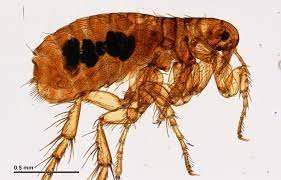Summary and Critical appreciation of the poem 'The Flea '.
Summary and Critical appreciation of the poem 'The Flea '.

Summary of the poem 'The Flea ' :---
The Flea" is a metaphysical poem, which is written by John Donne. It involves a speaker attempting to convince his lover to engage in physical intimacy by comparing their union to the mingling of blood within a flea that has bitten both of them. The speaker argues that since the flea has already combined their blood, the act of physical intimacy would be no different. The poem explores themes of seduction, persuasion, and the blurring of boundaries between individuals. It explores the idea of using a flea as a symbol of intimacy and sexual union between the speaker and his lover. The speaker uses the flea's bite, which has mingled their blood, as an argument to persuade his lover to embrace physical intimacy without concerns of societal norms or morality. The poem presents complex ideas of desire, persuasion, and the blurring of boundaries, using the flea as a central metaphor.
Critical appreciation of the poem 'The Flea' :---
'The Flea' is a metaphysical poem by John Donne, which presents a unique and witty exploration of love, desire, and persuasion. Through the speaker's argument, the flea becomes a symbol of their union, urging their beloved to reconsider the moral implications of rejecting their advances. The poem showcases Donne's clever use of conceit, where the flea's mingled blood stands in for physical intimacy. The juxtaposition of the flea's insignificance with the grand themes of love and marriage creates a thought-provoking tension. Donne employs clever wordplay and metaphors to weave a compelling argument, highlighting the complex intertwining of physical and spiritual aspects of love. The poem's use of the flea as a symbol and its metaphysical exploration of love make it a notable example of the genre. "The Flea" is a metaphysical poem written by John Donne, an English poet from the Renaissance period. The poem employs a clever and unconventional conceit, using the image of a flea as a central metaphor for sexual union. The poet uses the flea's bite as an analogy for the mingling of their blood and argues that their union in the flea is innocent, so why should they fear the more significant act of physical intimacy.
The poem's structure, with three distinct stanzas, mirrors the progression of the speaker's argument, from the flea as a symbol of unity to the exploration of religious and social norms. The witty wordplay and metaphysical reasoning showcase Donne's intellectual prowess, while also addressing the broader themes of seduction, persuasion, and the complexity of human desire.
Overall, "The Flea" is a masterful example of metaphysical poetry, using a seemingly trivial subject to delve into profound philosophical and emotional inquiries. The poem challenges conventional notions of morality and love, making it an intriguing exploration of the complexities of human relationships and the power of rhetoric.













